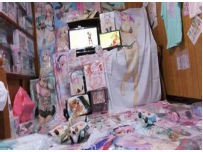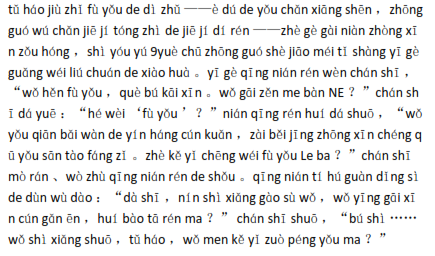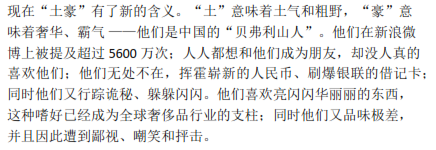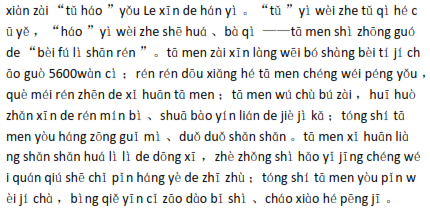

Tuhao once meant rich landowner -- the villainous landed gentry and class enemy of communist China's proletariat -- but the term's modern revival began with a popular joke that made its rounds on Chinese social media in early September. A young man asks a Zen master, "I'm wealthy but unhappy. What should I do?" The Zen master responds, "Define 'wealthy.'" The young man answers, "I have millions in the bank and three apartments in central Beijing. Is that wealthy?" The Zen master silently holds out a hand, inspiring the young man to a realization: "Master, are you telling me that I should be thankful and give back?" The Zen master says, "No … Tuhao, can I become your friend?"



Now Tuhao has a new meaning. Tu means dirt or uncouth; Hao means splendor -- and they are the Beverly Hillbillies of China.They have been mentioned more than 56 million times on Sina Weibo, China's Twitter. Everyone wants to be their friend, but no one likes them. They seem to be everywhere, throwing around their newly minted renminbi and well- used UnionPay debit cards; yet they are elusive and shun the media. Their love for bling has become the backbone of the global luxury goods industry, yet they are also the subject of disdain, the butt of jokes, the punching bag for that which is offensive to good taste.












